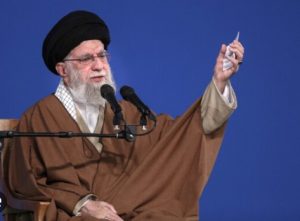- In the wake of Israel’s relentless military campaign in Gaza, Bangladesh witnessed an extraordinary wave of public outrage. From sprawling street rallies to campus shutdowns, citizens from all walks of life took to the streets in massive numbers, condemning Israel’s mindless killing of Palestinians.
The “March for Gaza” was one of the largest pro-Palestine rallies in Bangladesh’s history. A broad spectrum of political parties and Islamic groups also held widespread protests condemning Israel’s genocide in Gaza.
However, when Israel launched air strikes on Iran—an act condemned by the international community—the protest fell short of a similar level, with only a few Islamic groups denouncing it.
This stark contrast raises an important question: Why did Bangladeshis mobilise so forcefully over Gaza but remain largely silent over an Israeli attack on Iran?
Bangladesh’s solidarity with Palestine has deep historical and emotional roots. Since its independence in 1971, Bangladesh has consistently supported the Palestinian cause, while successive governments have condemned Israeli aggression in Gaza and the West Bank. Bangladesh does not recognise Israel and has no diplomatic ties with the country.
The issue of Palestine is strongly ingrained in the Bangladeshi public, particularly among Islamic political groups, student unions, and even major secular parties. It is not just a geopolitical matter, but a religious and humanitarian disaster. In April, Bangladesh saw one of its largest demonstrations in decades: hundreds of thousands gathered at Suhrawardy Udyan, carrying mock coffins, chanting anti-Israel slogans, and calling for global Muslim unity. The pressure was so intense that the government reinstated the “Except Israel” clause in passports, reversing the decision taken by the previous administration to remove it.
To most Bangladeshis, Palestine symbolises the oppression of Muslims by a Western-backed military power. Thus, Israel’s assault on Gaza is not just news—it is personal, emotional, and moral.
Iran’s case is different from that of Gaza/Palestine. While Bangladesh officially condemned Israel’s military strike on Iranian soil, the general public remained largely unmoved. There were no mass rallies, no school walkouts, no social media storm comparable to the outrage over Gaza.
Iran is a Shia-majority country, while Bangladesh is overwhelmingly Sunni. Despite ideological differences, the two countries have maintained cordial relations, though they were strained in the 1980s and 1990s due to Iran’s involvement in regional proxy conflicts and its backing of groups that did not align with Bangladesh’s internal political landscape. Although relations improved over time, Iran has never occupied the symbolic place in Bangladeshi public consciousness that Palestine has.
Furthermore, Iran is seen as a strong state with significant military capabilities and regional influence. Iranians are not perceived as helpless victims in the same way that Palestinians are.
Another key reason lies in the religious and political undercurrents of Bangladeshi society. Islamist parties such as Jamaat-e-Islami and Hefazat-e-Islam have long championed the Palestinian cause as part of a broader narrative of global Islamic struggle. Their rallies often feature Palestinian flags, but rarely Iranian ones.
Even secular political groups find safe political capital in supporting Palestine. Opposing Israel’s actions in Gaza does not alienate any major domestic constituency and is widely seen as a moral obligation. Criticising Israel’s actions against Iran, however, ventures into more politically ambiguous terrain—touching on Sunni-Shia divides and regional power politics involving Saudi Arabia, a close partner of Bangladesh.
At its heart, the difference comes down to symbolism. Gaza depicts a stateless people under occupation, suffering repeated massacres over the years with no means of defence. Iran, on the other hand, is a sovereign, militarised state involved in complex geopolitical dynamics.
For Bangladeshis, protesting for Gaza is a show of solidarity with the oppressed. Protesting for Iran, on the other hand, does not align with the same emotional or religious narrative—and hence fails to inspire collective action.


